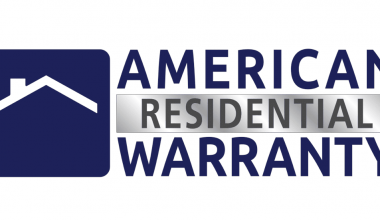You may have discovered your dream home, saved for a down payment, and planned to ensure you can afford the mortgage monthly. Your credit, on the other hand, is less than ideal.
You still have choices. Learn how your credit influences your borrowing power and about some of the best mortgage loans for people with bad credit. We’ve compiled a list and reviews of the best bad credit mortgage loan lenders in 2023.
What Constitutes a Bad Credit Score For Mortgage Loans Lenders?
What constitutes a “bad” credit score varies depending on the mortgage provider. However, the FICO scoring methodology deems scores below 580 to be low or bad.
- Below 580: bad credit.
- 580–669: Good credit
- 670 to 739: Excellent credit
- 740 or higher: Outstanding credit
Depending on the lending program, some house buyers may qualify for a home loan with credit scores as low as 500.
7 Mortgage Loans for People with Bad Credit
These seven mortgage loan programs can all assist consumers with bad credit in achieving their homeownership ambitions. However, the qualifications and credit score minimums differ depending on the program.
The best bad credit mortgage loan for you will likely be one with flexible qualification standards and monthly mortgage payments that you can readily afford.
#1. FHA loan: 500 minimum credit score
FHA (Federal Housing Administration) loans offer the lowest credit score criteria of any major home loan program.
Most lenders provide FHA loans starting with a credit score of 580. If your credit score is 580 or better, you only need to put down 3.5 percent.
Those with poor credit (500-579) may still be able to obtain an FHA loan. However, you’d need to put down at least 10%, and finding lenders who accept a credit score of 500 can be difficult.
Another compelling feature of an FHA loan is that, unlike conventional loans, it does not have risk-based pricing. This is referred to as “loan-level price changes” (LLPAs).
A risk-based pricing fee is applied to loan applications that have lower credit scores or other less-than-ideal characteristics.
There may be occasional interest rate “hits” for FHA borrowers with poor credit, but they are typically much lower than rate increases on conventional loans.
This means that for FHA-backed loans, low credit scores do not always need higher interest rates.
However, keep in mind that the FHA requires an upfront and annual mortgage insurance payment (MIP), which will increase the overall cost of your loan.
#2. VA loan: 580-620 minimum credit score
VA loans are popular mortgage loans that are only available to veterans, service members, certain eligible spouses, and military-affiliated borrowers.
These loans, which are backed by the Department of Veterans Affairs, do not need a down payment or recurring mortgage insurance payments. (However, there is a one-time funding cost that most borrowers include in the loan amount.)
In addition, VA loans often have the lowest interest rates on the market.
A VA loan does not have a minimum credit score requirement. Most lenders, however, need a minimum credit score of 580. And many begin at 620.
VA loans, like FHA loans, do not have risk-based pricing changes. Applicants with low credit scores can frequently obtain rates comparable to those offered to high-credit consumers.
#3. USDA home loan: A minimum credit score of 640 is required.
USDA loans are popular because they demand no down payment and have low-interest rates.
A 640 FICO score is normally required to qualify for this sort of mortgage, though minimum credit score requirements vary by lender.
The United States Department of Agriculture backs these mortgages with the purpose of boosting homeownership in rural communities.
To apply for this form of financing, the home you want to buy must be in a suitable “rural” location. However, some suburbs qualify as well.
A USDA loan will also not be approved if you make too much money. Your household income cannot exceed 115 percent of the area’s median household income.
#4. Conventional loans require a minimum credit score of 620.
Borrowers with poor credit are charged higher interest rates and costs on non-government conventional mortgage loans.
Fannie Mae and Freddie Mac, the entities in charge of the majority of conventional loans in the United States, levy loan-level pricing adjustments, or LLPAs.
These fees are determined by two loan factors:
- Loan-to-value (LTV): LTV is the ratio of the loan amount to the home’s value.
- Credit score
Your cost increases as your LTV increases and your credit score decreases.
For example, a borrower with a 20% down payment and a credit score of 700 will pay 1.25 percent of the loan amount in LLPAs. However, an applicant with a 640 score and 10% down will be charged a 2.75 percent fee.
Borrowers will pay higher interest rates as a result of these costs. As a result, applicants with lower credit scores will have higher monthly mortgage payments and will pay more interest throughout the life of the loan.
In order to qualify for a conventional loan, the majority of lenders will want a minimum credit score of 620.
Conventional loans are available to applicants with bad credit, but their fees frequently imply that FHA loans are less expensive for borrowers with poor credit.
#5. Fannie Mae HomeReady: A credit score of 620 is required.
HomeReady, which was introduced in December 2015, is an important Fannie Mae lending program for low- to moderate-income borrowers, with enhanced eligibility for financing homes in low-income neighborhoods.
HomeReady takes only 3% down and has a credit score of 620. Furthermore, you might use income from a roommate or border to assist you in qualifying for the loan.
Unlike Freddie Mac’s Home Possible program, HomeReady does not require you to be a first-time homebuyer.
Freddie Mac. Minimum credit score required: 660
Home Possible, Freddie Mac’s first-time home buyer program, assists purchasers in purchasing homes with a very modest down payment and moderate credit.
Home Possible is available to low and moderate-income consumers and requires only a 3% down payment. In addition, for borrowers who are unable to save for a down payment, Home Possible offers a variety of down payment assistance services.
Most lenders will require a 660 or higher credit score to qualify for the Home Possible loan with reduced private mortgage insurance (PMI) costs.
#6. Non-qualified mortgage (Non-QM): 500-580 minimum credit score
In 2014, the qualifying mortgage rule, generally known as the QM Rule, entered into effect.
The QM rule was established by the federal government to produce safer loans by barring or regulating certain high-risk mortgage products.
This is why most loans require a credit score in the 600s, as well as a down payment and/or private mortgage insurance.
However, some “non-QM” loans with more flexible conditions are still available.
When banks do not sell their mortgages to investors, they are allowed to set their own criteria, such as requiring a lower minimum credit score.
As a result, certain non-QM loans are available with credit ratings as low as 500. However, as with an FHA loan, a FICO score of 580 or better increases your chances of finding a lender that will accept you.
The disadvantage is that non-QM loans often have much higher interest rates than conforming mortgages. So, if your credit score is a little too low for a conventional home loan, it may be worth deferring your purchase until you can improve your credit and cut your borrowing expenses.
If you want a non-QM loan, look into the specialty mortgage programs that some banks and credit unions provide that are neither conventional nor government-backed. Work with a mortgage broker who can recommend products from multiple lenders that may be a good fit for you.
Best Mortgage Loans Lenders for Customers with Bad or Low Credit
- Rocket Mortgage
- Carrington Mortgage Services
- The Flagstar Bank
- The Bank of America
- Freedom Mortgage
#1. Rocket Mortgage Review
| Loan services | Purchase and refinance options include conventional, jumbo, FHA, VA, investment property, and flex-term loans. |
| Credit conditions | Conventional loans have a 620 credit score; jumbo loans have a 680 credit score, and FHA and VA loans have a 580 credit score. |
| Pros | Quick rate quotes A simple internet tool that allows you to connect bank accounts in order to verify assets and income. From 2014 to 2020, J.D. Power ranked first in customer satisfaction. |
| Cons | There are no branch offices. USDA loans are no longer accessible. Fee schedules are not accessible right away. |
| Highlight | Rocket Mortgage is an excellent choice for borrowers that desire a simple internet loan experience. |
#2. Carrington Mortgage Services
| Loan services | Purchase and refinance options include conventional, FHA, VA, USDA, and non-QM loans. |
| Credit conditions | 620 for conventional loans; 500 for FHA loans and VA loans; 500 for non-QM |
| Pros | There are several loan choices available for credit-challenged customers. Personal assistance from a dedicated loan officer Loans with low down payments for first-time homeowners |
| Cons | LoansLoans are not available in Massachusetts or North Dakota. To get prequalified and apply for a loan, you must speak with a loan representative directly. |
| Highlight | Carrington Mortgage Services provides a variety of mortgages as well as excellent in-person or phone support |
#3. The Flagstar Bank Reviews
| Loan services | Conventional, Jumbo, FHA, VA, USDA, home equity loans, construction and remodeling loans |
| Credit conditions | Conventional loans have a 620 credit score; jumbo loans have a 700 credit score, and FHA loans have a 580 credit score. |
| Pros | The Better Business Bureau has given us an A+ rating (BBB) All 50 states have it. Flexible mortgage alternatives and government-backed initiatives for credit-challenged borrowers With the Flagstar Gift Program, you can get up to $5,000 toward your down payment or closing fees. If you use Detroit Land Bank to buy a property, you can get up to $2,500 in down payment help and $7,500 in closing costs. There are no origination fees. |
| Cons | It is not BBB-accredited. |
| Highlight | Flagstar Bank provides down payment and closing cost assistance to help you realize your dream of homeownership, even if you have a history of credit problems. |
#4. The Bank of America
| Loan services | Purchase and refinance options include conventional, jumbo, FHA, VA, and home equity lines of credit (HELOC) |
| Credit requirements | 680 for jumbo loans; 620 for standard loans |
| Pros | The online application process has been streamlined. Government-backed mortgage options for customers with poor credit. Mortgage from Affordable Loan Solution with a 3% down payment and no mortgage insurance Interest rates are provided online and are updated on a daily basis. There are almost 4,000 outlets nationally providing in-person assistance. |
| Cons | No USDA loans |
| Highlight | Bank of America offers two grant programs: one for up to $7,500 in lender credit for closing costs or to lower the interest rate, and the other for up to $10,000 in down payment assistance. |
#5. Freedom Mortgage
| Loan services | Purchase and refinancing; conventional, jumbo, FHA, VA, USDA, HELOC, construction and renovation loans, investment property |
| Credit conditions | 580 for FHA loans and 620 for conventional loans and VA loans |
| Pros | All 50 states have it. Get assistance from a knowledgeable, local mortgage loan officer. |
| Cons | Not all states have branches. Rates are not available online. |
| Highlight | Freedom Mortgage is a leading provider of FHA and VA lenders, which have more lenient credit standards. |
Increasing your chances of approval for bad credit mortgage loans
Even if you have a low income, a low credit score, or unfavorable marks on your credit history, you can improve your chances of securing a bad credit home loan.
#1. Understand what’s on your credit reports.
Sometimes, erroneous information may appear on your credit reports. Before looking into bad credit house loans, take the effort to request a copy of your credit reports from the three major credit agencies — Equifax, Experian, and TransUnion — at AnnualCreditReport.com and analyze them for inaccuracies. If you see any erroneous information, you can use these steps to file a dispute and have the error removed from your reports.
#2. Increase your deposit
Putting down more money will help you get approved because it shows lenders that you can put money toward the mortgage. In the case of FHA loans, a larger down payment implies you can qualify with a credit score as low as 500. Furthermore, raising your down payment can improve your mortgage rate.
Making a budget to find ways to decrease costs or starting a side hustle to earn extra money can help you save for a larger down payment. Consider contributing any lump sums you receive, like as tax returns or bonuses, to your down payment. Furthermore, if you have loved ones who are ready and able to assist, you can always ask them to make a donation toward your home purchase.
#3. Pay off your debts and reduce your DTI.
Your DTI ratio is one element lenders consider when evaluating whether to approve you for a loan. Divide your total debt, including your mortgage payment, by your gross monthly income to get your DTI ratio. When buying a house with bad credit, you should ideally aim for a ratio of no more than 43 percent. However, DTI requirements differ per loan and lender.
Paying down some of your bills is one strategy to reduce your DTI; another is to boost your income. Either strategy can aid in the improvement of your DTI.
#4. Concentrate on a track record of timely payments.
Your payment history contributes 35% to your FICO score. As a result, keeping a perfect payment history is one of the best strategies to enhance your credit score and raise your chances of acquiring a bad credit home loan. If you have a history of late payments, you may consider delaying your mortgage application to minimize the impact on your loan conditions.
#5. Look for different lenders.
When looking for bad credit mortgage lenders, keep in mind that borrower requirements and prices will differ amongst lenders. A local credit union, for example, may have more lenient terms than a national bank, whereas an internet lender may have a proprietary loan program that you could qualify for. Consider different lenders’ possibilities and compare rates and terms.
Conclusion
If you’re seeking to buy or refinance a home and know you’ll need to improve your credit, it’s a good idea to contact a loan advisor straight away – even if you’re not sure you’d qualify.
Most lenders can run scenarios through their credit agency providers to determine the most efficient and/or cost-effective ways to raise your ratings. And this can be a far more effective approach than going it alone.
Bad Credit Mortgage Loans FAQs
Can I get a loan with a 500 credit score?
The answer relies on a variety of criteria, including the sort of loan you seek and the minimum credit score required. In general, if you have a credit score of 500 or lower, you will most likely be limited to a loan of $1,000 or less.
What is the lowest possible credit score to buy a house?
When applying for a traditional loan, you should have a credit score of 620 or above. If your credit score falls below 620, lenders may be unable to approve your loan or may be compelled to offer you a higher interest rate, resulting in higher monthly payments.
Is a FHA loan good?
If you have less money saved up for a down payment and/or have a below-average credit score, FHA loans are an excellent choice.






